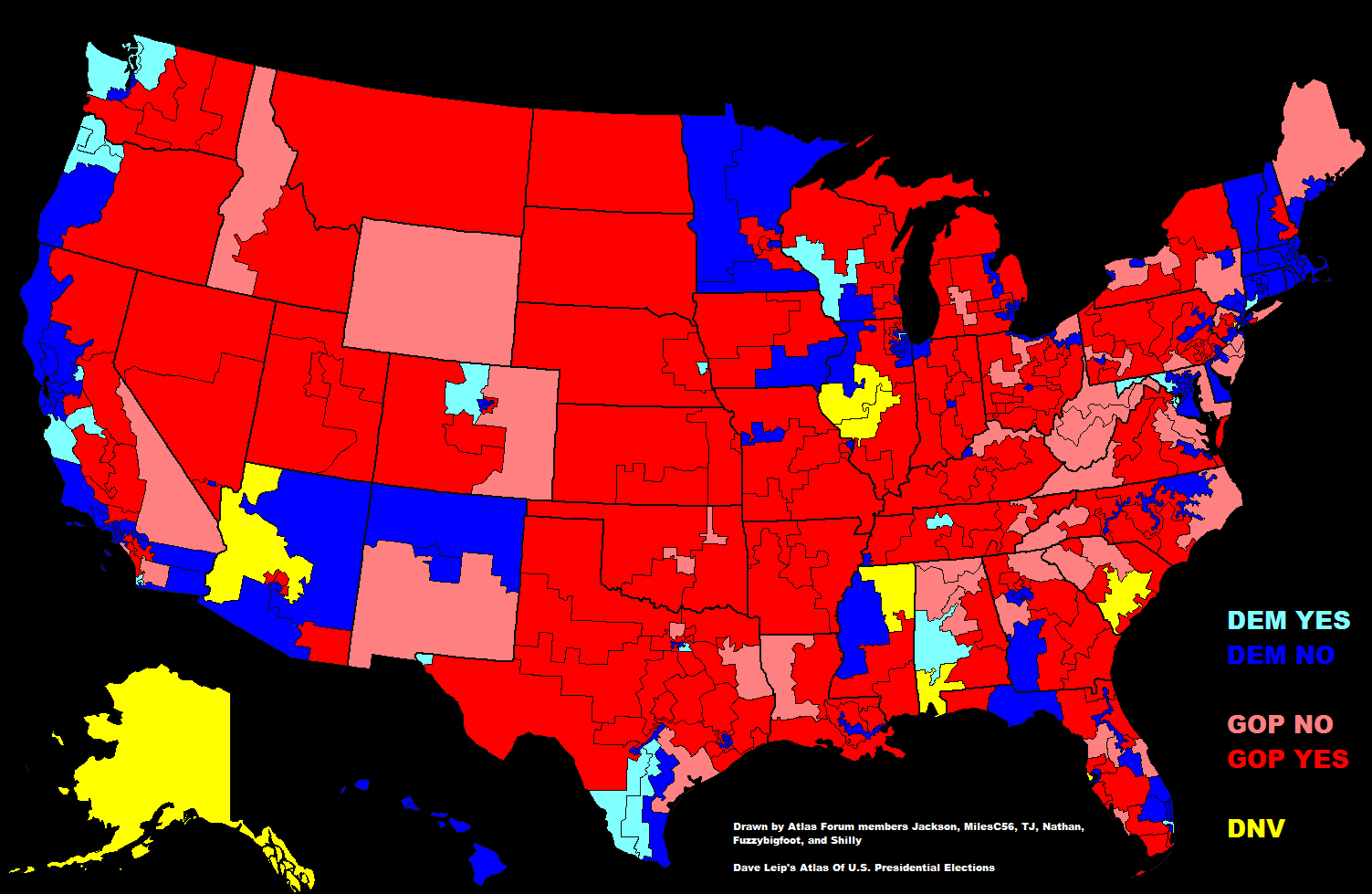|
Byrd Rule
Budget reconciliation is a special parliamentary procedure of the United States Congress set up to expedite the passage of certain budgetary legislation in the United States Senate. The procedure overrides the filibuster rules in the Senate, which may otherwise require a 60-vote supermajority for passage by the Senate. Bills described as reconciliation bills can pass the Senate by a simple majority of 51 votes or 50 votes plus the Vice President's as the tie-breaker. The reconciliation procedure also applies to the House of Representatives, but it has minor significance there, as the rules of the House of Representatives do not have a ''de facto'' supermajority requirement. Due to greater polarization, gridlock, and filibustering in the Senate in recent years, budget reconciliation has come to play an important role in how the United States Congress legislates. Budget reconciliation bills can deal with spending, revenue, and the federal debt limit, and the Senate can pass one ... [...More Info...] [...Related Items...] OR: [Wikipedia] [Google] [Baidu] |
Parliamentary Procedure
Parliamentary procedure is the accepted rules, ethics, and customs governing meetings of an assembly or organization. Its object is to allow orderly deliberation upon questions of interest to the organization and thus to arrive at the sense or the will of the majority of the assembly upon these questions. Self-governing organizations follow parliamentary procedure to debate and reach group decisions, usually by vote, with the least possible friction. In the United Kingdom, Canada, Ireland, Australia, New Zealand, South Africa, and other English-speaking countries, parliamentary procedure is often called ''chairmanship'', ''chairing'', the ''law of meetings'', ''procedure at meetings'', the ''conduct of meetings'', or the ''standing orders''. In the United States, it is referred to as ''parliamentary law'', ''parliamentary practice'', ''legislative procedure'', ''rules of order'', or ''Robert's rules of order''. Rules of order consist of rules written by the body itself (o ... [...More Info...] [...Related Items...] OR: [Wikipedia] [Google] [Baidu] |
American Rescue Plan Act Of 2021
The American Rescue Plan Act of 2021, also called the COVID-19 Stimulus Package or American Rescue Plan, is a economic stimulus bill passed by the 117th United States Congress and signed into law by President Joe Biden on March 11, 2021, to speed up the country's recovery from the economic and health effects of the COVID-19 pandemic and the ongoing recession. First proposed on January 14, 2021, the package builds upon many of the measures in the CARES Act from March 2020 and in the Consolidated Appropriations Act, 2021, from December. Beginning on February 2, 2021, Democrats in the United States Senate started to open debates on a budget resolution that would allow them to pass the stimulus package through the process of reconciliation which would not require support from Republicans. The House of Representatives voted 218–212 to approve its version of the budget resolution. A so-called '' vote-a-rama'' session started two days later after the resolution was approved, and ... [...More Info...] [...Related Items...] OR: [Wikipedia] [Google] [Baidu] |
Presiding Officer Of The United States Senate
The presiding officer of the United States Senate is the person who presides over the United States Senate and is charged with maintaining order and decorum, recognizing members to speak, and interpreting the Senate's rules, practices, and precedents. Senate presiding officer is a role, not an actual office. The actual role is usually performed by one of three officials: the vice president of the United States; an elected United States senator; or, under certain circumstances, the chief justice of the United States. Outside the constitutionally mandated roles, the actual appointment of a person to do the job of presiding over the Senate as a body is governed by Rule I of the Standing Rules. The United States Constitution establishes the vice president as president of the Senate, with the authority to cast a tie-breaking vote. Early vice presidents took an active role in regularly presiding over proceedings of the body, with the president pro tempore only being called on during t ... [...More Info...] [...Related Items...] OR: [Wikipedia] [Google] [Baidu] |
The Hill (newspaper)
''The Hill'' is an American newspaper and digital media company based in Washington, D.C. that was founded in 1994. Focusing on politics, policy, business and international relations, ''The Hill''s coverage includes the U.S. Congress, the presidency and executive branch, and election campaigns. ''The Hill'' describes its output as "nonpartisan reporting on the inner workings of Government and the nexus of politics and business". The company's primary outlet is TheHill.com. ''The Hill'' is additionally distributed in print for free around Washington, D.C. and distributed to all congressional offices. It is owned by Nexstar Media Group. History Founding and early years The company was founded as a newspaper in 1994 by Democratic power broker and New York businessman Jerry Finkelstein, and Martin Tolchin, a former correspondent for ''The New York Times''. New York Representative Gary L. Ackerman was also a major shareholder. The name of the publication alludes to "Capitol Hill" ... [...More Info...] [...Related Items...] OR: [Wikipedia] [Google] [Baidu] |
Robert Byrd
Robert Carlyle Byrd (born Cornelius Calvin Sale Jr.; November 20, 1917 – June 28, 2010) was an American politician and musician who served as a United States senator from West Virginia for over 51 years, from 1959 until his death in 2010. A Democrat, Byrd also served as a U.S. representative for six years, from 1953 until 1959. He remains the longest-serving U.S. Senator in history; he was the longest-serving member in the history of the United States Congress until surpassed by Representative John Dingell of Michigan. Byrd is the only West Virginian to have served in both chambers of the state legislature and in both chambers of Congress. Byrd's political career spanned more than sixty years. He first entered the political arena by organizing and leading a local chapter of the Ku Klux Klan in the 1940s, an action he later described as "the greatest mistake I ever made." He then served in the West Virginia House of Delegates from 1947 to 1950, and the West Virginia Stat ... [...More Info...] [...Related Items...] OR: [Wikipedia] [Google] [Baidu] |
Presentment Clause
The Presentment Clause (Article I, Section 7, Clauses 2 and 3) of the United States Constitution outlines federal government of the United States, federal Legislation, legislative procedure by which Bill (proposed law), bills originating in United States Congress, Congress become Law of the United States, federal law in the United States. Text The Presentment Clause, which is contained in Article One of the United States Constitution, Article I, Section 7, Clauses 2 and 3, provides: Summary * A bill must be passed in identical form by both the House of Representatives and the Senate. It is common practice for each House to pass its own version of a bill, and then to refer the two versions to a United States congressional conference committee, conference committee, which resolves disagreements between the two versions, and drafts a compromise bill; the compromise bill can then be voted upon and passed by both Houses in identical form. * After a bill passes both Houses, it must ... [...More Info...] [...Related Items...] OR: [Wikipedia] [Google] [Baidu] |
Vote-a-rama
A "vote-a-rama" (or "vote-arama", "vote-athon") is a procedure in the United States Senate that allows senators to propose an unlimited number of amendments to budget-related measures. After brief debate, the amendments are each voted on in rapid succession. Vote-a-ramas have been a fixture of Senate budget and reconciliation bills since the 1990s. They are primarily a political messaging tool, as they allow individual senators to force votes on divisive or controversial amendments that would not ordinarily be allowed by the majority leader. History In the United States Senate, vote-a-ramas have been a feature of the consideration of budget resolutions and reconciliation bills since the 1980s, and they became a fixture since conflict between the political parties intensified in the mid-1990s. The term "vote-a-rama" appears to have been coined by Senator Trent Lott, then the Republican majority whip, in 1996. The practice of vote-a-rama developed by custom through agreements ... [...More Info...] [...Related Items...] OR: [Wikipedia] [Google] [Baidu] |
Fast Track (trade)
The fast track authority for brokering trade agreements is the authority of the President of the United States to negotiate international agreements in an expedited manner and with limited congressional oversight. Renamed the trade promotion authority (TPA) in 2002, the TPA is an impermanent power granted by Congress to the President. It remained in effect from 1975 to 1994, pursuant to the Trade Act of 1974 and from 2002 to 2007 pursuant to the Trade Act of 2002. Although it technically expired in July 2007, it remained in effect for agreements that were already under negotiation until their passage in 2011. In June 2015, a third renewal passed Congress and was signed into law by President Barack Obama. Under the TPA, the President's trade negotiations must follow guidelines and negotiating objectives set by Congress. If the negotiations follow the negotiating objectives, the implementing bill may pass Congress on majority votes instead of the three-fifths threshold normall ... [...More Info...] [...Related Items...] OR: [Wikipedia] [Google] [Baidu] |
Cloture
Cloture (, also ), closure or, informally, a guillotine, is a motion or process in parliamentary procedure aimed at bringing debate to a quick end. The cloture procedure originated in the French National Assembly, from which the name is taken. ''Clôture'' is French for "the act of terminating something". It was introduced into the Parliament of the United Kingdom by William Ewart Gladstone to overcome the obstructionism of the Irish Parliamentary Party and was made permanent in 1887. It was subsequently adopted by the United States Senate and other legislatures. The name ''cloture'' remains in the United States; in Commonwealth countries it is usually ''closure'' or, informally, ''guillotine''; in the United Kingdom ''closure'' and ''guillotine'' are distinct motions. Australia In Australia, the procedure by which finite debating times for particular bills are set, or protracted debates are brought to a close, is referred to as a "guillotine" or “gag”. Generally, a minister ... [...More Info...] [...Related Items...] OR: [Wikipedia] [Google] [Baidu] |
Filibuster In The United States Senate
A filibuster is a tactic used in the U.S. Senate to delay or block a vote on a measure by preventing debate on it from ending. The Senate's rules place few restrictions on debate; in general, if no other senator is speaking, a senator who seeks recognition is entitled to speak for as long as they wish. Only when debate concludes can the measure be put to a vote. Rule XXII of the Standing Rules of the Senate allows the Senate to vote to limit debate by invoking cloture on the pending question. In most cases, however, this requires a majority of three-fifths of senators duly chosen and sworn, so a minority of senators can block a measure, even if it has the support of a simple majority. Originally, the Senate's rules did not provide for a procedure for the Senate to vote to end debate on a question so that it could be voted on. The minority could therefore extend debate on a bill indefinitely by holding the floor of the Senate, preventing the bill from coming to a vote. Through ... [...More Info...] [...Related Items...] OR: [Wikipedia] [Google] [Baidu] |
Omnibus Bill
An omnibus bill is a proposed law that covers a number of diverse or unrelated topics. ''Omnibus'' is derived from Latin and means "to, for, by, with or from everything". An omnibus bill is a single document that is accepted in a single vote by a legislature but packages together several measures into one or combines diverse subjects. Because of their large size and scope, omnibus bills limit opportunities for debate and scrutiny. Historically, omnibus bills have sometimes been used to pass controversial amendments. For this reason, some consider omnibus bills to be anti-democratic. United States In the United States, omnibus bills are sometimes known as "Big Ugly" bills. Examples include reconciliation bills, combined appropriations bills, and private relief and claims bills. Appropriations legislation Omnibus legislation is routinely used by the United States Congress to group together the budgets of all departments in one year in an omnibus spending bill. For example, ... [...More Info...] [...Related Items...] OR: [Wikipedia] [Google] [Baidu] |







